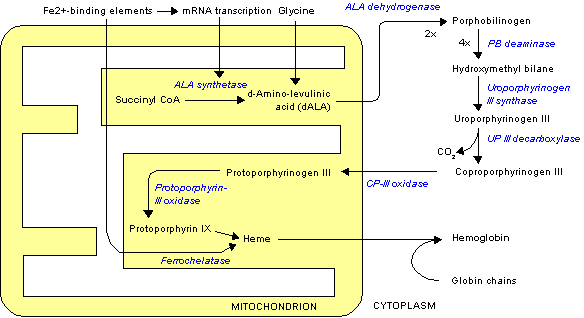December was the worst month Mary Ann Mattson can remember. The Orofino woman took her toddler, Nicholas Ashby, to Utah to save his life. But for 10 days this month she held him in his hospital bed while he shook with a 105-degree fever. He coughed and his mouth exploded with sores.
Doctors had just replaced all his bone marrow. Until Nick's body accepted the transplant, he had no immune system to protect him.
"A day didn't go by that I didn't think, 'What in the world did I do? Why does Nicholas have to suffer?' " Mary Ann says. She's still with Nick at the University of Utah's Primary Children's Hospital in Salt Lake City. "I want to go home. We need good things to happen to us now."
Mary Ann shared Nick's story with Spokesman-Review readers in October. Her 3-year-old son suffers from a rare blood disorder - congenital erythropoietic porphyria - that causes his skin to erupt in sores like chicken pox when he's exposed to the sun or bright light. His body produces hair to protect his skin and his adult teeth will grow in black, if he lives past the age of 5. The disorder is nicknamed werewolf's syndrome.
The disorder is so rare that it's been found in only 200 people worldwide. Seven of those, including Nick, are in the United States. The closest geneticist familiar with the disorder is at the University of Utah School of Medicine.
In September, doctors there told Mary Ann a bone marrow transplant or new blood from an umbilical cord were Nick's only chances of beating the disorder, which a clash of his parents' chromosomes caused.
The hunt for a bone marrow donor was agony. Of the 5 million people registered in the National Marrow Donor Program, only one matched Nick closely enough to consider. Doctors scheduled the transplant for early December. Mary Ann and Nick arrived in Salt Lake City the third week in November with high hopes.
But the trip was a fiasco from the start. The night before Nick checked into Primary Children's, he crashed jumping on a motel bed. He arrived at the hospital with bumps and bruises on his head and two black eyes.
Nonstop bleeding was next after nurses inserted a port into Nick's arm. Mary Ann cried until nurses brought the bleeding under control. Then Nick started nine days of chemotherapy to prepare his body for the bone marrow transplant.
"The last four days of the nine were horrid," Mary Ann says.
The transplant nearly fell through. The donor's bone marrow produces an overabundance of red blood cells. Doctors called specialists around the world for answers. They decided Nick's body could use the iron red blood cells contain. Since bones constantly replenish red blood cells, Nick would have to regulate his blood level by donating his blood every two months.
"If that's what he has to do for a normal life, he can do that," Mary Ann says.
The transplant went on schedule and was a cakewalk. Mary Ann sat in a recliner holding Nick while doctors pumped the donor's bone marrow into him. The hospital staff crowded into the room to watch and dubbed it Nick's bone marrow birthday - the start of his new life.
"An hour after the transplant he was sitting on his bed playing with his trucks," Mary Ann says.
That's when his grandparents, Bob and Janet Gregg, of Lewiston, visited.
"He was doing all right. We were real hopeful," Janet says. "We can hardly wait to get him back home."
For five days, Nick played in his room like any toddler. Then, a flu germ found him. Nurses pumped antibodies into him. Mary Ann hugged her son while he shivered and coughed. The mood was dismal until two days before Christmas, when tests showed Nick's body was starting to accept the donated bone marrow.
Mary Ann knows they have a long road ahead. Early signs are positive but don't guarantee anything. When Nick reaches the first benchmark doctors set, he and Mary Ann will leave the hospital for a less-protected isolated apartment in the Ronald McDonald House. Mary Ann is counting on moving as the new year begins.
A steady stream of gifts, money, prayers and support has helped Mary Ann through the toughest moments. A Utah family adopted Mary Ann and Nick for Christmas, quilted Nick a blanket and raised $1,000 for him. Utah Jazz players brought Nick a basketball. Utah Grizzlies ice hockey players gave him a teddy bear. A woman in Spokane sends Nick a gift for every holiday.
Other patients also helped Mary Ann through.
"I thought my world was the worst when I came here," she says. "It's not."
A 7-month-old baby next door to Nick has brain cancer. A 4-year- old boy down the hall had a bone marrow transplant, but no family visits him. Mary Ann's hero is an 18-month-old boy with leukemia.
"He had chemo and he runs through the halls," she says. "Every day I find him and tell myself that's how Nick will be."
If Happy New Year means anything at all.
SIDEBAR: HOW TO HELP DONATIONS Medical insurance doesn't cover Mary Ann Mattson's expenses while she stays with her son, Nicholas Ashby, in Salt Lake City. To help, send donations to the Nicholas Ashby Benefit Account, P.O. Box 1173, Orofino, ID 83544. Close to Home
Cynthia Taggart can be reached at (208) 765-7128 or by e-mail at cynthiat@spokesman.com.
Copyright c 2004 The Spokesman-Review
Provided by ProQuest Information and Learning Company. All rights Reserved.



